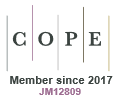Provisioning by tourists affects the behaviour but not the body condition of Mareeba rock-wallabies (Petrogale mareeba )
Amanda J. Hodgson, Helene Marsh and Peter J. Corkeron
Wildlife Research
31(4) 451 - 456
Published: 23 August 2004
Abstract
Feeding free-ranging native animals is a form of wildlife-based tourism that is particularly popular in Australia as a result of the cryptic nature of many native species. The colony of Mareeba rock-wallabies (Petrogale mareeba) at 'Granite Gorge', North Queensland, where tourists feed a spatially defined subset of animals daily, was studied to determine the effects of provisioning on their behaviour and body condition. Provisioned P. mareeba had higher activity levels, including higher aggression levels, and spent more time performing contact behaviours (including mutual and non-mutual allogrooming) than did non-provisioned animals. Possible explanations for increased aggression include competition over provisioned food and territorial defence. Increased contact behaviours may serve to reduce tension caused by provisioning. The diurnal activities of the provisioned rock-wallabies were dictated by the activities of tourists. Provisioned rock-wallabies emerged from their shelters to receive food much earlier each afternoon than did the unprovisioned animals. The level of autogrooming exhibited by the provisioned wallabies was much higher than that of the unprovisioned animals, presumably as a thermoregulatory response to the high afternoon temperatures. Although provisioned P. mareeba feed more, their higher activity levels explain the lack of difference in the body condition between the two groups.https://doi.org/10.1071/WR03083
© CSIRO 2004


